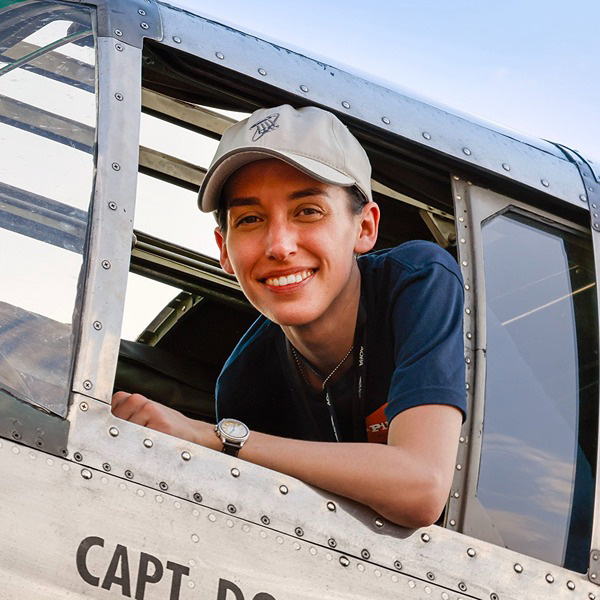View from above
Aerial survey pilot reaches entrepreneurial heights
“Fly airplanes, take pictures, travel the world,” says Sol Aerial Surveys’ Instagram bio, and the account is full of smiling pilots and incredible scenery, all captioned with obvious enthusiasm for the job.

Peter Makredes, president and owner of Sol Aerial Surveys, earned a degree in accounting before becoming a pilot, advancing quickly until eventually landing a job at SkyWest Airlines. He liked many aspects of the work, but couldn’t shake the feeling that it just “wasn’t for him.” Having enjoyed a previous job in aerial surveying, he left the airline, bought a Cessna 320E (which happened to be serial number 1), and started his own aerial survey company.
Five years later, Makredes operates Sol Aerial Surveys at North Las Vegas Airport (VGT), Nevada, with a crew of 12 pilots, the same C320E and seven Cessna 310Rs, one of which is also serial number 1. Their usual job types are large scale commercial mapping—doing big city gridwork for applications such as insurance, roofing, solar, and government at locations all over the United States and Canada.
For Makredes and his survey pilots, a typical day starts the day before with extensive weather checks, route planning, and determining the “sun angle window”—the period during the day when the sun is higher than 30 degrees from the horizon—to minimize shadows. The morning of each mission requires a detailed preflight and prepping of the camera systems before takeoff. Once airborne, the cameras operate automatically, and pilots fly a grid using GPS tracking over their target.
Staff pilots are based at their home locations across the country and work rotations of two weeks on and two weeks off, traveling to the job sites via airline, while the aircraft stay out at the job locations. When a job is completed—which may take a few weeks—a pilot will fly the aircraft to the next job site, getting valuable cross-country time.
Aerial surveying is becoming more popular with pilots as a way to build hours and have fun while getting well-rounded flying experience, and Sol Aerial Surveys is currently looking to hire.
Although meeting minimum qualifications will get an applicant noticed, hiring decisions are ultimately made based on the pilot’s ability to thrive in autonomous work in a single-pilot environment, and his or her demonstrated commitment to the company’s core values of safety, integrity, hard work, and “the little things matter.”
“We have a really cool job we want to share; to show the world and attract them to what we do,” says Makredes.

 Qualifications: Commercial multiengine, instrument rating, high performance and complex endorsement, 450 total hours (80 multiengine).
Qualifications: Commercial multiengine, instrument rating, high performance and complex endorsement, 450 total hours (80 multiengine).

